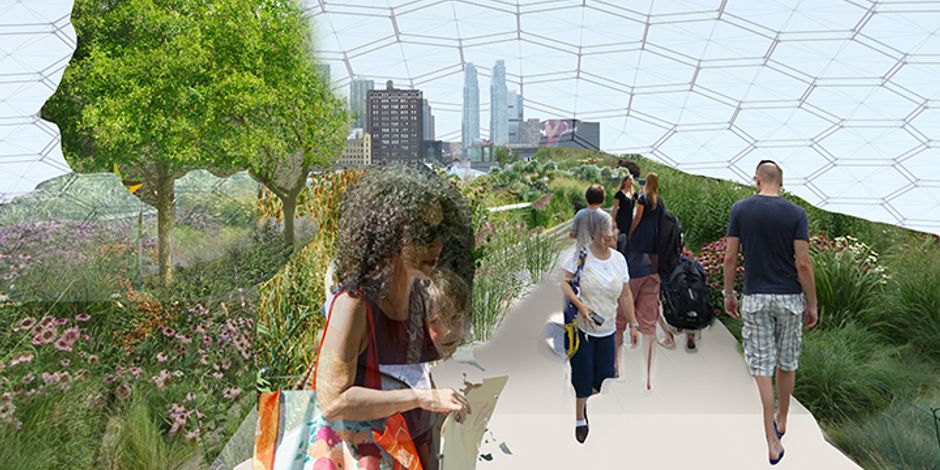Swale

"Swale" is a sculptural floating island containing a public food forest that will dock at various piers around New York City’s harbor in 2016.
Unlike industrial agriculture, food forests are naturally regenerating and grow to be stronger and more plentiful each year—making them one of the most resilient means for sustainable food production. Despite these benefits, food forests have been off-limits in public in NYC for more than century out of fear that a glut of foragers may destroy an ecosystem.
Built from repurposed shipping containers, this floating sculpture will stretch 50 feet across and will feature walkways, and an edible forest garden utilizing purified river water. After construction of "Swale" is completed in June 2016, the work will begin its journey, docking at each pier for one month at a time.
AwesomeNYC's grant will underwrite a series of educational/community workshops taking place at locations in the Bronx, Brooklyn, and Staten Island.
In collaboration with local schools/environmental groups, Swale’s team will offer educational programming such as permaculture workshops, participatory budgeting, and design charrettes to each borough’s students and residents.
While the scope of this project is grand, our funding will be serving a smaller but more immediate need. Through their workshops, the Swale team will be helping to educate the next generation of New Yorkers about both food issues in this city as well as what it means to have big, audacious ideas and to make them happen in this world, promoting Awesome for years to come.
Says project creator Mary Mattingly:
Through “Swale,” I hope to help shift the perception of food from a private commodity to a public right. As we face a precarious future marked by the unprecedented impact of human life, "Swale" will underscore the role of art in aiding the collective reimagining of the public sphere, as well as its potential for proposing solutions to the challenges that lie before us.
I strongly believe that art is integral to imagining new worlds. By reimagining the public sphere, "Swale" can challenge power dynamics between corporate food production, deregulation, privatization, and a widening inequality connected to social and food justice. It can strengthen collaborative ways of working together, being together, and supporting each other. I believe that the democratic process involved in co-designing a public space can be a road map for larger-scale community design projects. These projects allow us to reimagine the cities in which we live in profound ways.
Mary will be holding a workshop for teens in collaboration with MoMA in the Spring of 2016 and her work will be on exhibit at Light Work from January - March 2016.